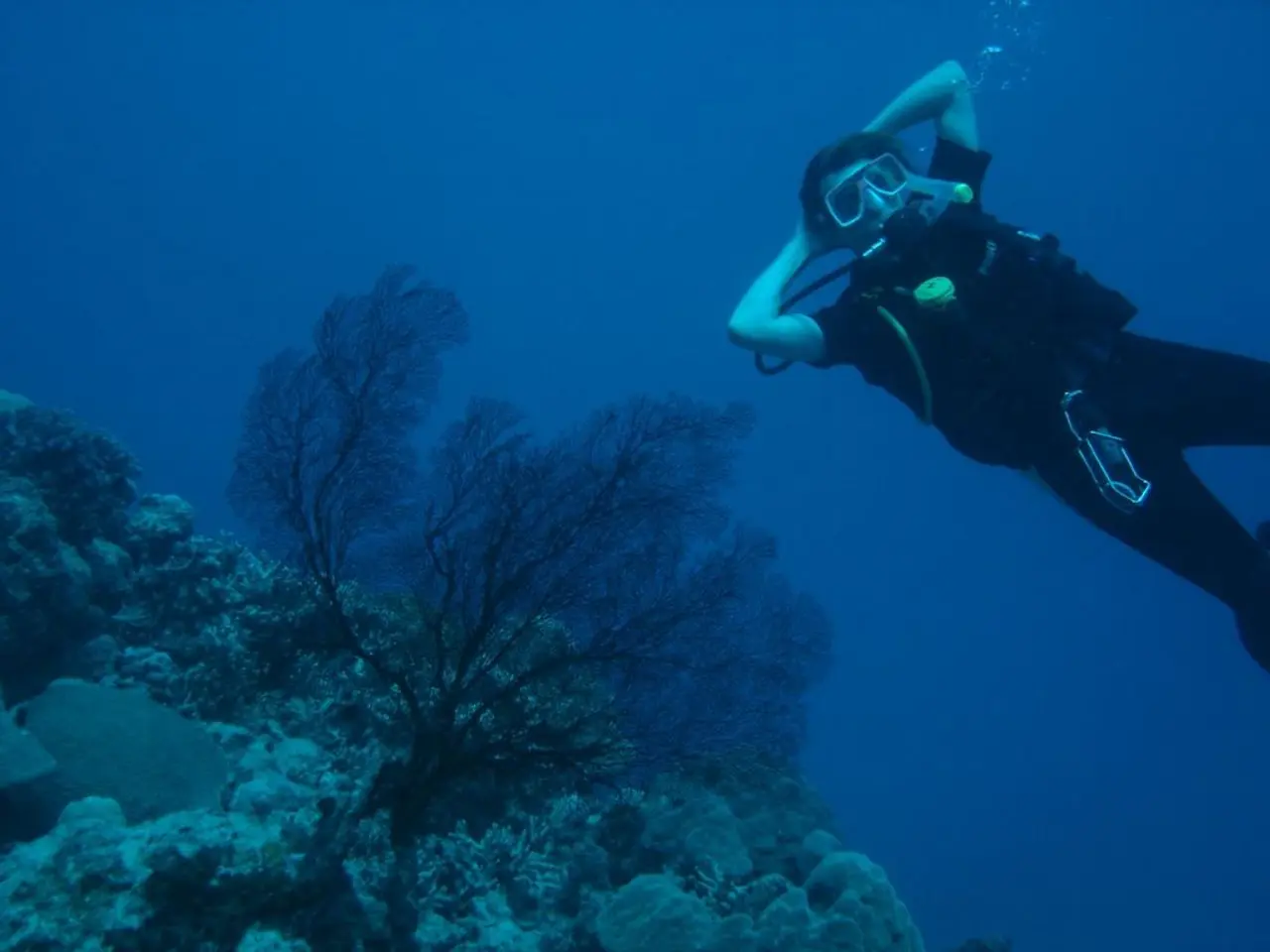Underwater Divers Retrieve Ancient Explosives in Wismar Bay - Undersea Divers Retrieving Trash in Wismarer Bay
In the picturesque Wismar Bay near Boltenhagen, a 30-day pilot project for underwater munitions clearance has commenced. The executing company for this significant endeavour is the Baltic Diving and Salvage Company in Rostock (Baltic Divers).
The project's primary objective is to locate and safely remove unexploded World War II munitions from the seabed, thereby reducing risks to marine life, fisheries, shipping, and recreational activities. This controlled trial aims to assess the methods, technologies, and logistics involved in safely identifying and disposing of these hazardous remnants underwater.
Many areas in the Baltic Sea, including near Wismar Bay, harbour submerged WWII ordnance that poses ongoing environmental and safety hazards. Clearance projects like this pilot typically aim to enable safer maritime use and ecological restoration. The region near Boltenhagen and Wismar is known for historical WWII munitions dumping or remnants, requiring modern intervention.
The salvage platform "Baltic Lift," owned by Baltic Divers and previously a tanker, is anchored at four points. Initially, divers loosened smaller munitions pieces from the cluster, and later, 12.5-centimeter diameter grenades were brought to an underwater sorting station. A robot inspected the entire munitions field at a depth of about 22 meters. Underwater sorting places for the munitions have been lowered into the water.
Explosive expert Wolfgang Sichermann has stated that, while an explosion risk is not the first risk factor in this project, the containers are corroding piece by piece, releasing explosives that dissolve well in water and have carcinogenic and mutation-promoting effects.
Around 15 tons of old munitions are expected to be salvaged in four weeks. The salvaged munitions will remain underwater until a transport ship to Wismar is available, which is not expected until mid-August at the earliest.
This project is part of the immediate program for munitions debris in the North and Baltic Seas, with a total of 100 million euros from federal funds available. The costs for the recovery near Boltenhagen are estimated at around five million euros. After the four-week work is completed, mussels will be exposed on the seabed near the operation site and tested for possible pollutants.
Following the completion of the pilot project, detailed progress results such as quantities found, clearance success, or challenges encountered will likely be available from local government, environmental agencies, or project-specific press releases.
- The Community policy ought to prioritize vocational training for divers and experts in environmental-science, particularly in the field of climate-change, to ensure efficient and safe handling of such projects in the future.
- The industry should invest in energy-efficient technology and sustainable-living practices, as the finance sector increasingly turns to personal-finance and fintech, focusing on environmentally responsible ventures.
- With the escalating concern for climate-change, it's essential that schools incorporate a curriculum in education-and-self-development, covering topics like data-and-cloud-computing and the impolding environmental crisis.
- The success of the Wismar Bay munitions clearance project signifies a significant breakthrough in the application of science and technology in solving real-life problems, from marine conservation to sports-analysis.
- Under the guidance of specialists like Wolfgang Sichermann, the importance of personal-growth in recognizing the impact of environmental hazards and the need for their resolution cannot be overstated.
- As more projects like this one are funded, the home-and-garden sector can develop eco-friendly products and services catering to the growing demand for sustainable living, from solar panels to energy-efficient appliances.
- Just as we prioritize exercise and sports in maintaining our physical health, we must also dedicate time and resources to learning and personal development, to better understand and address pressing global issues such as climate-change.
- By embarking on large-scale munitions clearance projects, we are not only safeguarding shipping, maritime, and recreational activities but also promoting the restoration of the marine environment and biodiversity.
- In light of the costs associated with clearance projects, it is crucial to allocate additional funds in the community policy for vocational training in vocational training programs, focusing on fields that can contribute to future endeavors in marine ecology and technology.
- Given the money invested in large projects like this one, it is vital to analyze the return on investment in terms of environmental preservation, safety improvements, and economic benefits for the industry, including real-estate and finance.




